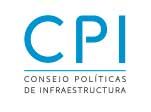INFRAMATION NEWS – Chilean’s privately owned fund managers remain severally underinvested in infrastructure despite legislation being enacted over 11 months ago which makes it easier to do so.
This had been partly due to investment rules for pension funds, known as Administradoras de Fondos de Pensiones (AFPs), and a shortage of new projects. However, prospects for a turnaround are in store as new projects have surfaced followed by a government change in March, while AFPs have created new investment teams to study their participation in upcoming tenders for a slew of profitable toll road concessions.
Of Chile’s six pension funds, the four largest – AFP Habitat, AFP Cuprum, AFP Capital and AFP ProVida – have submitted policies to invest in alternative assets that have been approved by the pensions regulator, Superintendencia de Pensiones, according to information from the regulator.
All four of these AFPs have recently hired executives and created specialized investment teams that are working to identify the guarantees and risks associated with these types of investments in Chile and abroad, said Carlos Cruz, executive secretary of the National Infrastructure Policy Council (CPI).
All of these teams were still being formed as of mid-2018. “It’s the herd mentality, they’ll all at about the same stage,” Cruz said.
The other two funds – AFP Modelo and AFP PlanVital – have yet to submit their investment policies, the regulator confirmed.
Chile’s pension fund managers, which collectively manage over USD 200bn in assets, are not averse to infrastructure investment. They actively participated in the first generation of investment in highway works concessions in the 1990s and 2000s through infrastructure bonds. However, until a 2017 reform, they were prohibited from investing directly in concessions.
Seeking to boost investment in infrastructure, create jobs and increase returns for pension funds, the Chilean government promulgated the Productivity Law (Ley de Productividad) in 2016, which partially relaxed restrictions on investments by pension funds. Then, in October 2017, the pensions regulator published norms that allow AFPs to invest in ‘alternative assets, both in Chile and abroad.
These assets may include infrastructure, real estate and private equity.
According to the central bank’s rules, the limits for investment by AFPs in alternative assets – including local and foreign assets – range from 10% for the riskiest fund (Fondo A) to 5% for the fund with the least risk (Fondo E).
However, to date, the total investment by AFPs in these assets amounts to USD 5.34 bn, equivalent to just 2.6% of the total amount managed by Chilean pension funds, according to data obtained by Inframation from the pensions regulator.
In addition, only a small percentage of that amount – USD 149m, or 2.79% of investment in alternative assets – corresponds to investment in infrastructure, the regulator said.
So, what explains the low appetite for investment in infrastructure?
One reason is that Chilean pension funds are forbidden from investing in instruments subject to liens, encumbrances or transfer restrictions, said Katannya Jablonski, a senior associate at law firm Morales & Besa.
“If those assets are subject to liens, as in many public works concessions that are pledged in favor of the financiers, the AFPs require a special authorization to invest in them”, she said.
Another reason is that, under the 2017 reform, AFPs can only invest in assets managed by companies approved by the Chilean risk rating commission, Comisión Clasificadora de Riesgo, which meet certain financial and experience requirements.
“Given the experience requirements, in a first stage [the AFPs] are expected to invest in foreign instruments, particularly private capital. Then later invest in Chile, as the offer develops,” explained Roberto Fuentes, head of research at the national private association of AFPs, Asociación de AFP.
In addition, under the mies set by the regulator, pension fund managers require guaranteed returns and the possibility of divesting their equity holdings quickly if necessary, said Carlos Cruz.
“Despite the reform, new infrastructure projects are unlikely to meet these criteria and the market is not deep enough for new projects to have these characteristics yet,” Cruz noted.
Opportunities for infra financing
As part of President Sebastián Piñera’s plans to boost infrastructure investment and spur economic growth, the Ministry of Public Works is expected to tender a large portfolio of projects in the next few years, including roads, hospitals and rail lines.
Since AFPs can now invest in these types of projects, this could increase competition in the financial market as pension funds may participate, long with a financial institution, in the financing of syndicated loans, said Roberto Fuentes.
Morales & Besa’s Jablonski admitting that financing for infrastructure concessions is generally “nota cause for concern” in Chile given the stability of the market and profitability of concessions, but demand is set to rise with the Ministry planning at least seven road tenders, she said.
“The main risks for the AFPs, as for any financier, occur mainly during the construction stage of a public works concession,” she said.
Even so, AFPs not unlikely to compete with banks in the offer of short-term project financing, said the CPI’s Carlos Cruz.
“Banks are the first line of financing for new projects…whereas pension funds are interested in stable long-term financing with guaranteed returns,” Cruz said.
The tender for the Camino de la Fruta road, for example, is more attractive for banks since it requires project financing with risk during the construction phase, Cruz pointed out.
To reduce this risk, at least in a first stage, AFPs are more likely to acquire equity stakes in concessionaires or invest in existing concessions, Cruz added.
Private equity
Mature projects, especially highways first tendered during Chile’s first wave of concessions in the early 1990s, are more attractive to pension funds since they bring limited financial risk and higher returns.
In particular, AFPs could replace banks in new concessions for older toll roads, Cruz said, adding that several AFPs have already enquired about equity participations in several road concessionaires.
“Equity investments are more attractive because they give the pension funds higher long-term returns than loans,” he said.
For example, the four largest AFPs have expressed interest in acquiring a 50% stake in the SPV for the Vespucio Norte road concession, which is being sold by Brookfield Infrastructure Partners, Cruz said.
AFPs would likely partner with an infrastructure operator such as Globalvia, Grupo Costanera or Abertis, Cruz added.
Spanish developer Sacyr, which has hired BTG Pactual as financial advisor to sell assets worth up to half of the company’s operational Chilean portfolio, has also targeted local pension funds in its sale process, said Cruz.
Sacyr’s assets would specifically interest investment funds, such as AFPs, with no interest in having a controlling stake, according to a source close to the situation.
Sacyr declined comment on the situation.
Chilean pension funds could end up competing with investment funds, such as Fondo Las Américas, which have previously financed infrastructure projects in Chile, partly with resources from the AFPs, Cruz said.
However, AFPs still need time to develop expertise in this ares. “The [AFPs] have always operated through intermediaries, so they are just now starting to study the market to understand how it works and the risks,” he said.
Infrastructure Fund
A longer-term opportunity for AFPs to invest in infrastructure is through the newly created Infrastructure Fund, which is pending the appointment of its board but is expected to have total equity of CLP 6.5bn (USD 9bn).
The Fund, which is expected to launch in the first half of 2019, is designed to channel income from existing toll road concessions into new projects backed by State financial guarantees.
AFPs could invest in bonds issued by the Fund, although they would not be able to acquire shares since the Fund will be 100% owned by the State and its investment promotion arm, CORFO, said Jablonski.
“The interest [of the AFPs] in being able to participate in the Fund’s assets, or in other concessions that are not part of the Fund, comes from their ability to invest in alternative assets that are generally profitable, such as highway concessions,” said Jablonski.
As part of his infrastructure plan, President Piñera will re-tender over 1,500 km of road concessions set to expire during his government’s term from 2018 to 2022.
AFPs will analyze their participation in “the second generation of investments in concessions”, provided there is a favorable regulatory environment, mainly through the re-tendering of sections of the Ruta 5 highway, said Roberto Fuentes.
One of the first such re-tenders will be the concession for the Los Vilos-La Serena section of the north-south highway Ruta 5, which is currently operated by Sacyr Concesiones and expires in 2022, said Cruz.
“There have been few projects so the market is a bit slow…I think this will start to activate from 2019 or maybe this year with the sale of Vespucio Norte,” he said.
Like foreign pension funds, such as the Canada Pension Plan Investment Board (CPPIB), which owns a stake in Chile’s Grupo Costanera, Chilean pension funds are seeking altematives to increase returns, and they may not have to look far.
“It will change the market completely…AFPs will compete with the Canadian and Australian pension funds, which have been the most active in long-term financing in Chile,” Cruz said.
And Chilean pensioners, who are clamoring for higher pensions, stand to gain. Pensions could increase by 10% in the long term due to investments in alternative assets, a spokesperson for the regulator said.
Chilean pension funds are inexperienced in infrastructure investments, but -as funds from other countries, such as Canada, have shown- they could generate high returns for their clients and the country.
“I think this is a good alternative,” Cruz concluded.
Fuente: Inframation News, 12 de octubre de 2018






